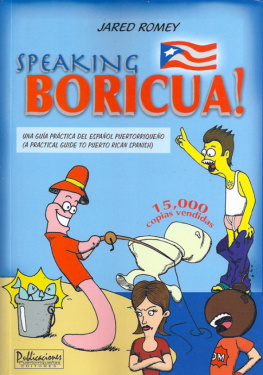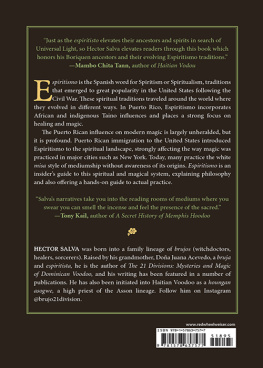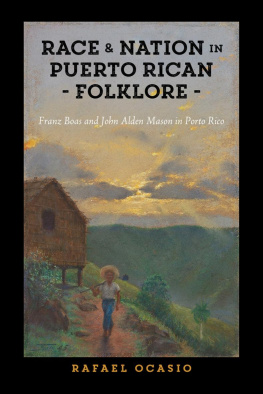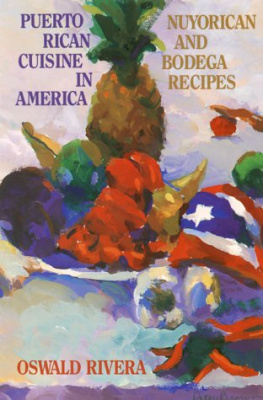First published 1996 by Westview Press
Published 2019 by Routledge
52 Vanderbilt Avenue, New York, NY 10017
2 Park Square, Milton Park, Abingdon, Oxon OX14 4RN
Routledge is an imprint of the Taylor & Francis Group, an informa business
Copyright 1996 Taylor & Francis
All rights reserved. No part of this book may be reprinted or reproduced or utilised in any form or by any electronic, mechanical, or other means, now known or hereafter invented, including photocopying and recording, or in any information storage or retrieval system, without permission in writing from the publishers.
Notice:
Product or corporate names may be trademarks or registered trademarks, and are used only for identification and explanation without intent to infringe.
A CIP catalog record for this book is available from the Library of Congress.
ISBN 13: 978-0-367-28982-9 (hbk)
Many individuals deserve thanks for the completion of this book. I am deeply grateful to all the women who have shared parts of their lives with me. Their personal strengths and insights about their place in the world inspired me to continue my search for other interviewees in spite of dead ends and discouragements.
Kathleen Crittenden, Marisa Alicea, John Johnstone, Anthony Orum, Mary Pellauer, Margaret Strobel and R. Stephen Warner provided helpful critiques at various stages of this research.
The success of this project depended on the usefulness of my interview guide. The guide was improved by suggestions from Roberta Fruth, Leigh Peterman, and especially from Doris Domberger.
Rosa Bedoya of Network for Youth Services has been generous with her time. Her insights about her work with teen mothers was invaluable. She located both interviewees and persons knowledgeable about the community, and she introduced me to a local restaurant that serves wonderful Puerto Rican food.
This book would not exist in printed form without the help of Bill Peterman, who rescued it at least twice from computer meltdown.
My editor, Jill Rothenberg, provided the support and encouragement I needed to revise and complete the manuscript.
Monetary support for this research was provided by the Rue Bucher Memorial Award administered by the Department of Sociology at the University of Illinois at Chicago and by a grant from the Fahs-Beck Fund for Research and Experimentation.
Jean P. Peterman
1
Introduction
Women in every culture and historical period have used abortion to control their fertility (Smith-Rosenberg 1985). Although the fact of abortion is a constant, the cultural, social and personal experience of abortion is not. This book will focus on the experiences of a particular group of women, Puerto Rican women now living in Chicago, who have at some point in their lives decided to get an abortion.
It may seem surprising that Latina women, including Puerto Rican women, have abortions at a rate one and a half times as high as non-Latinas (Henshaw and Silverman 1988). This high abortion rate coupled with sexually conservative ethnic and religious traditions indicates a cultural contradiction within the Puerto Rican community. A Puerto Rican woman who has an abortion must resolve this contradiction in her own way.
Many Puerto Rican women believe that they must conceal an unplanned pregnancy and an abortion from family members out of respect for these family members. As Jennifer Friedman (1992) demonstrates in her research on teenagers, interdependence and respect for ones parents and other elders characterize Latina families. Respecting ones family for a Latina daughter means not openly disagreeing with her parents opinions or rules of behavior. As Friedman states, Latina daughters would rather lie about what they did, than push the boundaries of an elder (21). She explains that the norm of respect enables families to survive (21) and is a source of support. Members of a minority group who are poor are far more likely than poor whites to live in racially or ethnically segregated neighborhoods with a high concentration of poor people (Jargowsky and Bane 1990). The very fact of living in such a neighborhood, and sharing an ethnic and neighborhood culture, may affect how a woman experiences her decision to get an abortion. Additionally, Puerto Rican culture and religious traditions are examples of influences that could make the decision difficult.
A Puerto Rican woman who cannot reveal that she is pregnant may have to resolve her situation without the support of those she needs the most. Additionally, she often lacks cultural support for her decision, and if she is poor, she lacks material resources as well. In spite of these obstacles, the women I interviewed have more than survived. They have made changes in their own lives and the lives of others.
Laurel Richardsons (1990) notion of cultural stories and collective stories provides a useful way of analyzing narratives. According to Richardson, a cultural story provides
a general understanding of the stock of meanings and their relationship to each other. The process of telling the story creates and supports a social world. Cultural stories provide exemplars of lives, heroes, villains, and fools as they are embedded in larger cultural and social frameworks, as well as stories about home, community, society, and humankind. Morality and cautionary tales instruct the young and control the adult (127).
The cultural story is told from the point of view of the ruling interests and the normative order (128). The collective story, in contrast, displays an individuals story by narrativizing the experiences of the social category to which the individual belongs, rather than by telling the particular individuals story or by simply retelling the cultural story (128). These collective stories are alternative stories that may emerge through social movement activities or simply by a sharing of experiences.
For example, the mainstream American cultural story is that America is a land of opportunity and anyone who works hard can succeed. The collective story of Puerto Ricans and other communities of color is very different. This story involves struggle against barriers intrinsic to the social structure such as poverty, prejudice and discrimination. The collective story can create a new shared consciousness (Padilla 1985) and the possibility of working for change. For many Puerto Rican women, the cultural story is about virginity, family, motherhood, and male dominance. The collective story in these narratives both modifies and contradicts the cultural story. The collective story is about self-determination and resisting male control. A consistent theme of both the cultural and collective stories is the interdependence and respect that characterize Puerto Rican family life.
In creating, doing, and writing about this research, I am situating myself in the reflexive tradition (e.g. Stacey 1990, 1991; Gluck, Berger, and Patai, 1991; Warner 1988; Stanley and Wise 1991, 1993.) Stanley and Wise (1993) explain that reflexive research must be concerned with the experience and consciousness of the researcher as an essential part of the research process (28). They go on to explain that
all research involves, at its basis, an interaction, a relationship, between researcher and researched. We also believe that such a relationship exists whether the researched are books, secondary data, other objects, or people. Because the basis of all research is a relationship, this necessarily involves the presence of the researcher as a person (161, emphasis in original).







